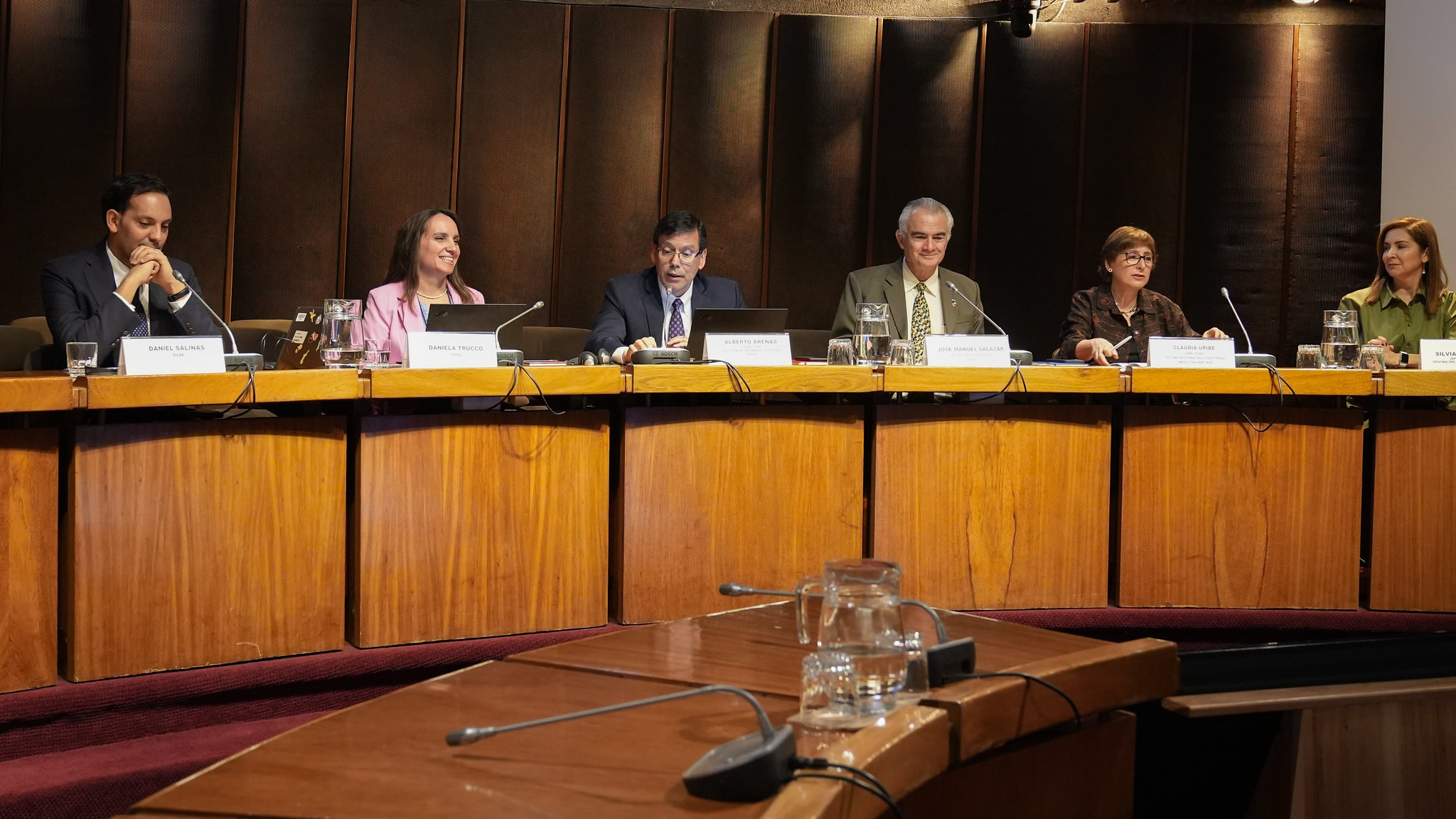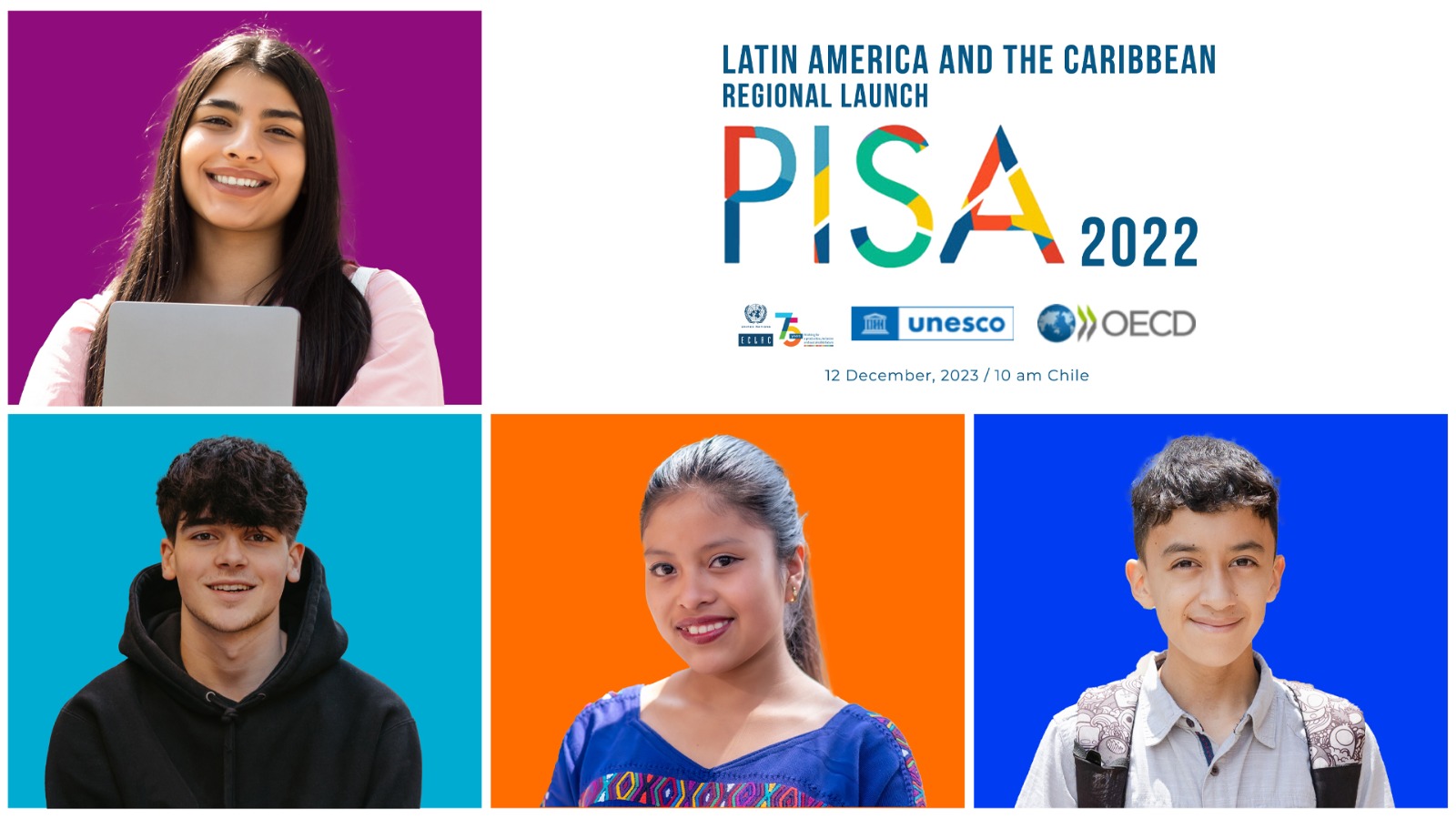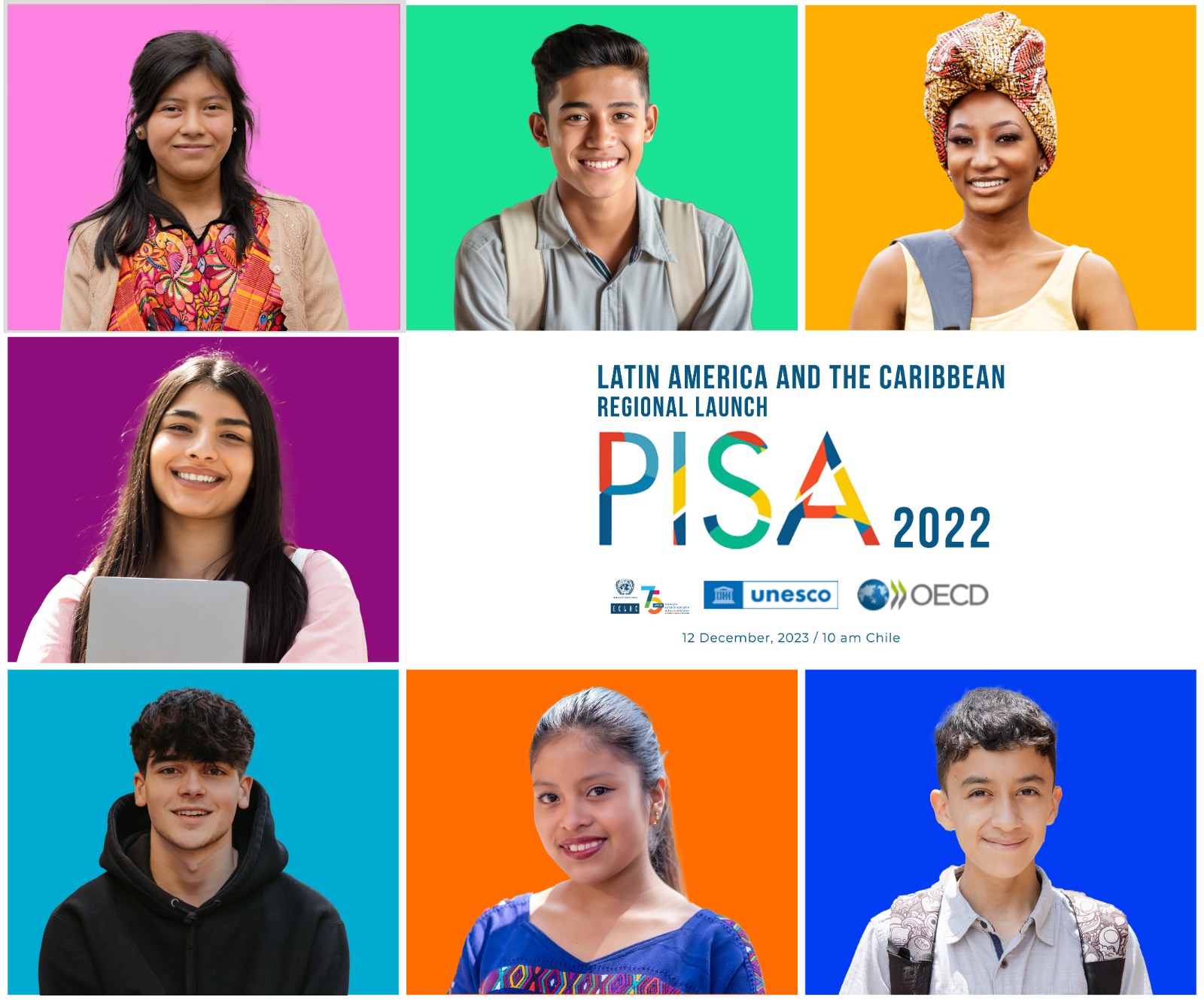Latin America and the Caribbean Must Address Crisis in Learning if it Wants to Move towards More Productive, Inclusive, Sustainable and Democratic Development
Work area(s)
The region’s poor performance in the PISA 2022 evaluation requires firm responses by countries to improve their education systems, according to the specialists at a hybrid event held at ECLAC.

The poor educational performance of Latin American and Caribbean countries, which was demonstrated once again by the results of the OECD's 2022 Programme for International Student Assessment (PISA), requires firm responses by the region’s countries in order to resume the progress of recent decades, undo the damage and scars left by the COVID-19 pandemic, and move towards more productive, inclusive, sustainable and democratic development with social justice, according to the specialists participating in a seminar held today at ECLAC.
The event, Latin America and the Caribbean Regional Launch PISA 2022, was organized by the Economic Commission for Latin America and the Caribbean (ECLAC), the Organisation for Economic Co-operation and Development (OECD) and the UNESCO Regional Office in Santiago, drawing the participation of education specialists and government representatives from the region.
The event’s welcome remarks were made by José Manuel Salazar-Xirinachs, ECLAC’s Executive Secretary; Andreas Schleicher, the OECD’s Director for Education and Skills (virtually); and Claudia Uribe, Director of the Regional Multisectoral Office of UNESCO in Santiago.
“The results of the PISA 2022 assessment conducted by the OECD confirm our worst fears about the overall deterioration in the learning of a whole generation of students, not just in the region but throughout the world. The educational blackout in Latin America and the Caribbean prompted by the COVID-19 pandemic, which was the biggest in the world, has left behind damage and scars that, unfortunately, will be visible in the region for many years to come,” warned José Manuel Salazar-Xirinachs, ECLAC’s Executive Secretary.
Despite educational advances in the region in recent decades, there were already signs of stagnation before the pandemic, according to the assessment of two studies published in 2022: the Social Panorama of Latin America and the Caribbean 2022: Transforming education as a basis for sustainable development, by ECLAC, and the Regional monitoring report SDG4 - Education 2030, prepared by UNESCO, UNICEF and ECLAC. After COVID-19, there was a high risk of a lost generation that needed to be urgently addressed, the Commission warned last year.
“In order to move towards a more productive, inclusive and sustainable development pattern, which is also more democratic and has more social justice in Latin America and the Caribbean, an improvement in education systems is an essential condition,” ECLAC’s highest authority sustained, calling for taking advantage of the information provided by international assessments such as PISA, as well as other regionally produced evaluations, to design and implement concrete actions for educational improvement in the region.
Andreas Schleicher, the OECD’s Director for Education and Skills, indicated that “While we should be concerned about overall performance declines across PISA-participating countries, our latest results show that despite considerable challenges, some countries in Latin America have managed to achieve remarkable progress in terms of performance in mathematics, reading and science while also improving in terms of equity and school enrolment.”
Meanwhile, Claudia Uribe, Director of the Regional Multisectoral Office of UNESCO in Santiago, stated that “PISA 2022 calls on us to take action, since it shows that a large proportion of girls and boys in the region has not managed to acquire basic proficiency, for example just 25% of students acquired basic proficiency in mathematics. Such poor performances had already been flagged by UNESCO’s ERCE study before the pandemic.”
PISA measures the ability of 15 year olds (who are enrolled in seventh grade or above) to use their reading, mathematics and science knowledge and skills to meet real-life challenges.
According to the information provided at the event, some 690,000 15-year-old students in 81 countries and economies participated in PISA 2022, including 14 Latin American and Caribbean countries: Argentina, Brazil, Chile, Colombia, Costa Rica, the Dominican Republic, El Salvador, Guatemala, Jamaica, Mexico, Panama, Paraguay, Peru and Uruguay.
Since the assessment began in 2000, participation by the region’s countries has tripled, rising from 5 to 14.
Despite the region’s heterogeneous outcomes, PISA 2022 confirmed that Latin America and the Caribbean continues to perform poorly in education at an international level.
In the region, three out of every four students do not have basic proficiency in mathematics (in comparison with 31% in OECD countries), 55% do not have basic reading skills and 57% lack basic science skills. All the region’s countries fare better in reading than in math and science.
The countries with the best performance on all three tests are Chile and Uruguay, and the countries with the poorest performance are El Salvador, Guatemala, the Dominican Republic and Paraguay.
PISA 2022 recorded an unprecedented drop in performance across the OECD in mathematics and reading. In contrast, in this region, the evolution of countries is mixed.
In mathematics, for instance, the performance of Costa Rica, Mexico, Uruguay and Peru worsened; Argentina, Brazil, Chile, Colombia and Panama stayed stable; and the Dominican Republic, Paraguay and Guatemala improved their results.
In addition, a high degree of inequality in educational performance can be seen that hurts students in more vulnerable situations: on average, 88% of the poorest students in the region perform poorly in mathematics, compared with 55% of the wealthiest pupils.
In that vein, PISA 2022 points to a greater scarcity of human and pedagogical resources in the schools of the region with lower socioeconomic levels.
According to ECLAC’s data, public spending on education in Latin America and the Caribbean in 2022, on average, fulfilled at least one of the two global commitments to education financing: spending of at least 4% of GDP, or 15% of total public expenditures. However, the countries that invest the most in education in the region invest less than practically all of the OECD countries. On average, OECD countries invest nearly 5 times more per student than what Latin American and Caribbean countries invest.
To address these and other challenges, in late January 2024, an extraordinary ministerial meeting of Education Ministers from Latin America and the Caribbean will be held at ECLAC’s headquarters, convened by UNESCO and the Chilean Education Ministry, and co-organized by the CAF-Development Bank of Latin America and the Caribbean, the World Bank, ECLAC and UNICEF.
Related content

How Did Latin America and the Caribbean Do on PISA 2022?
On Tuesday, December 12 at an event at ECLAC, the main results of the OECD's 2022 Programme for International Student Assessment (PISA) will be analyzed, along with the region’s educational outlook.

Latin America and the Caribbean Regional Launch PISA 2022
The objective of this hybrid event is to disseminate the results of the OECD's 2022 Programme for International Student Assessment (PISA) and promote their use to address the challenges that…

Social Panorama of Latin America and the Caribbean 2022: Transforming education as a basis for sustainable development
Presentation by ECLAC's Executive Secretary, José Manuel Salazar-Xirinachs.
Type
Country(ies)
- Latin America and the Caribbean